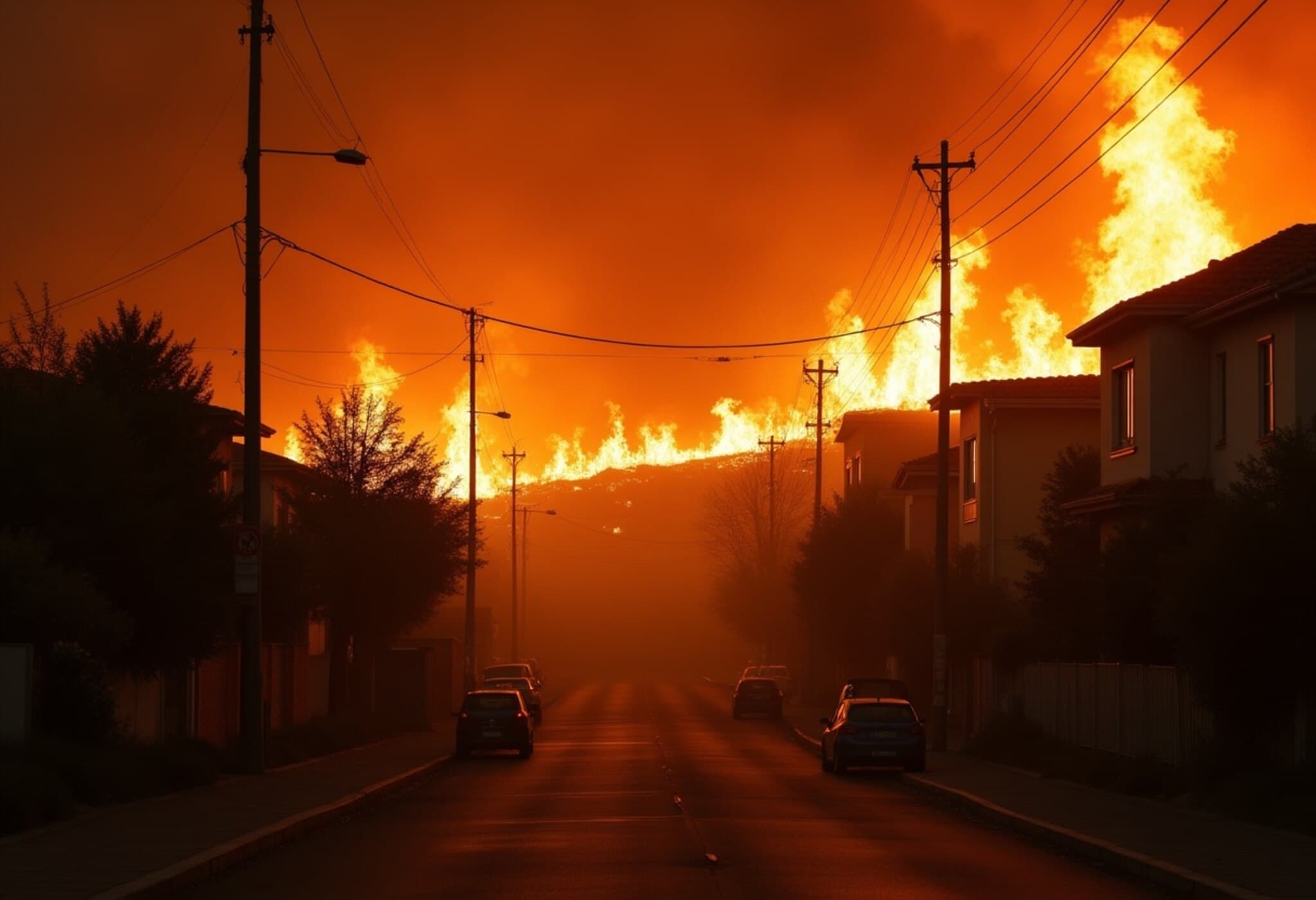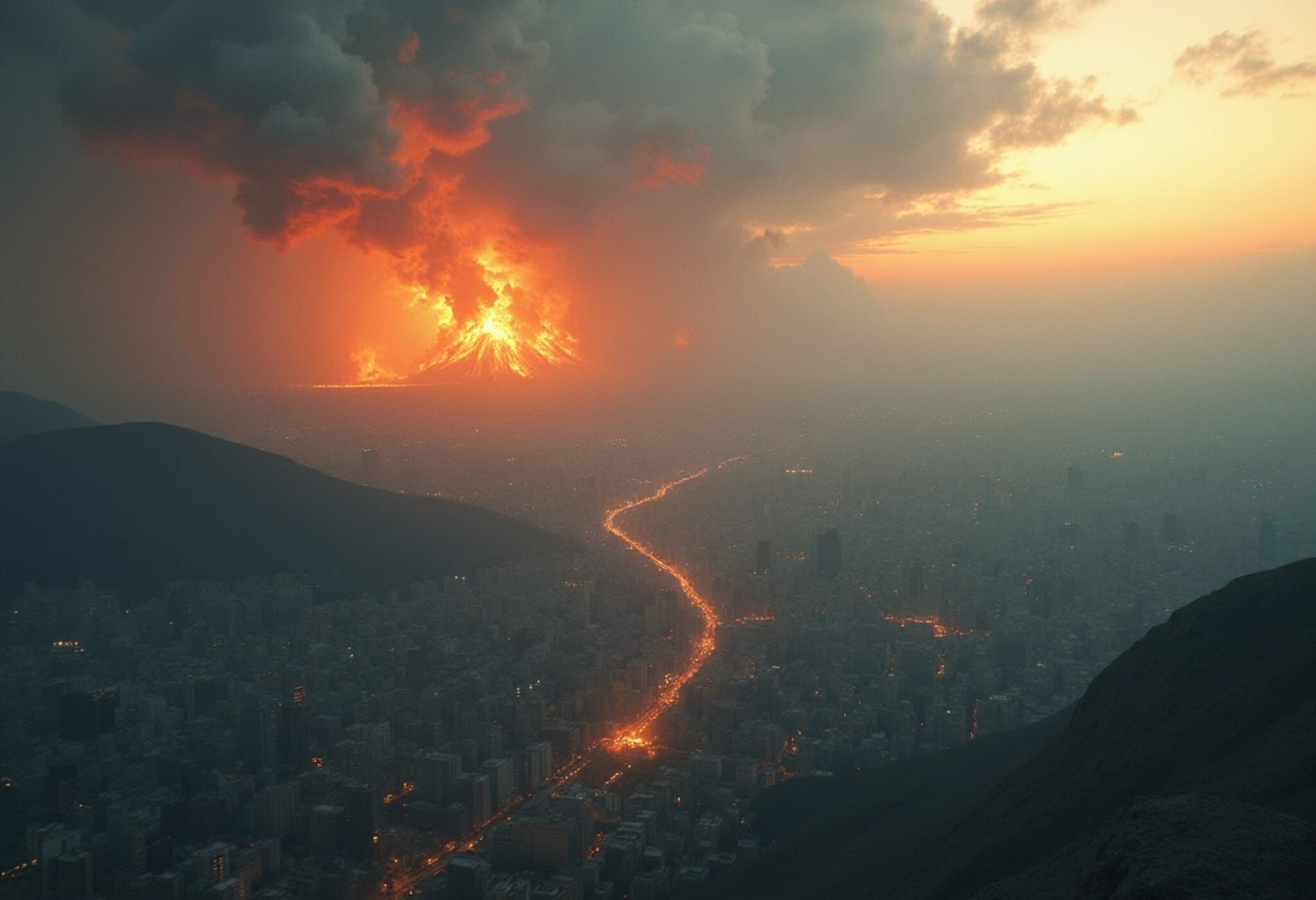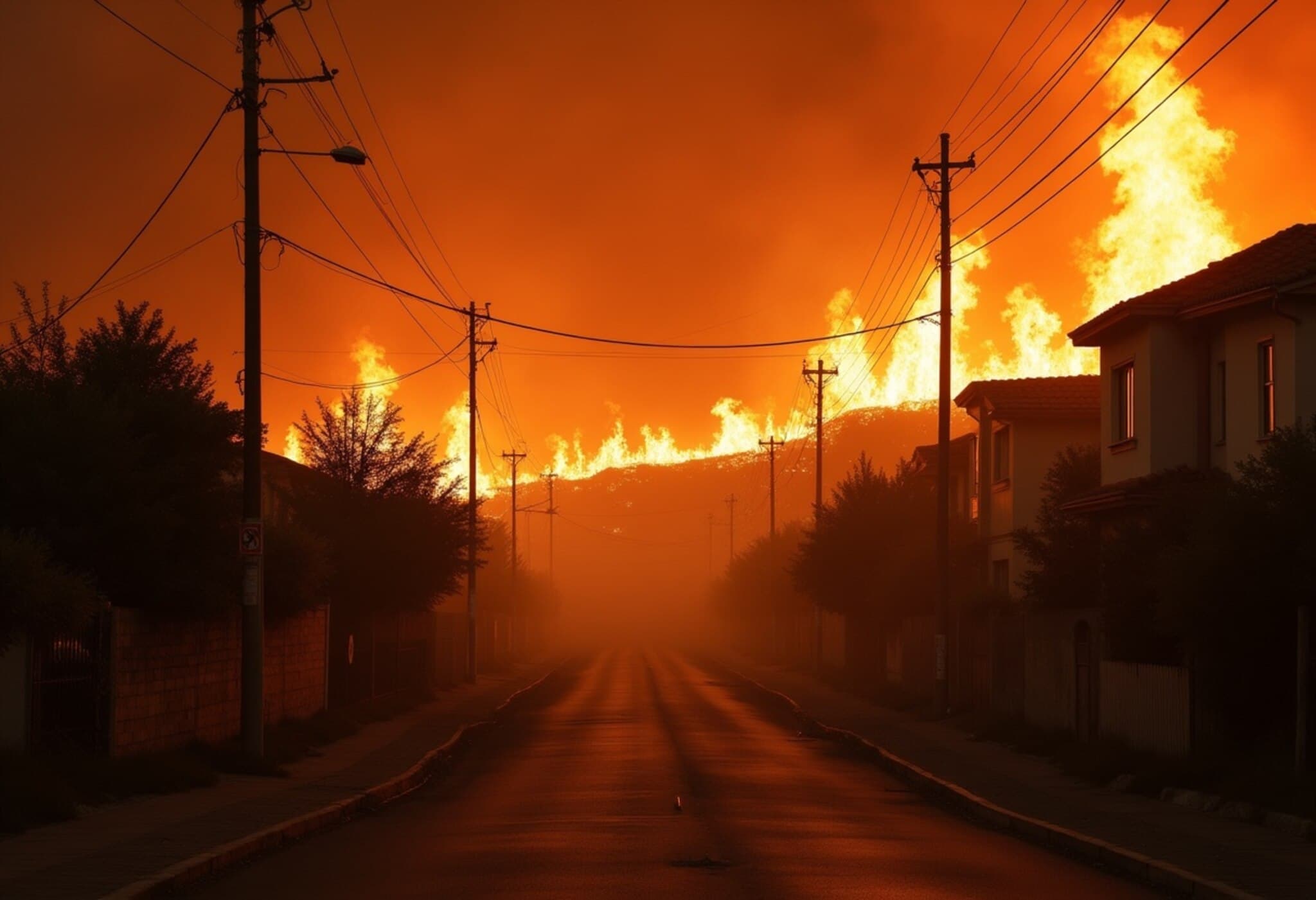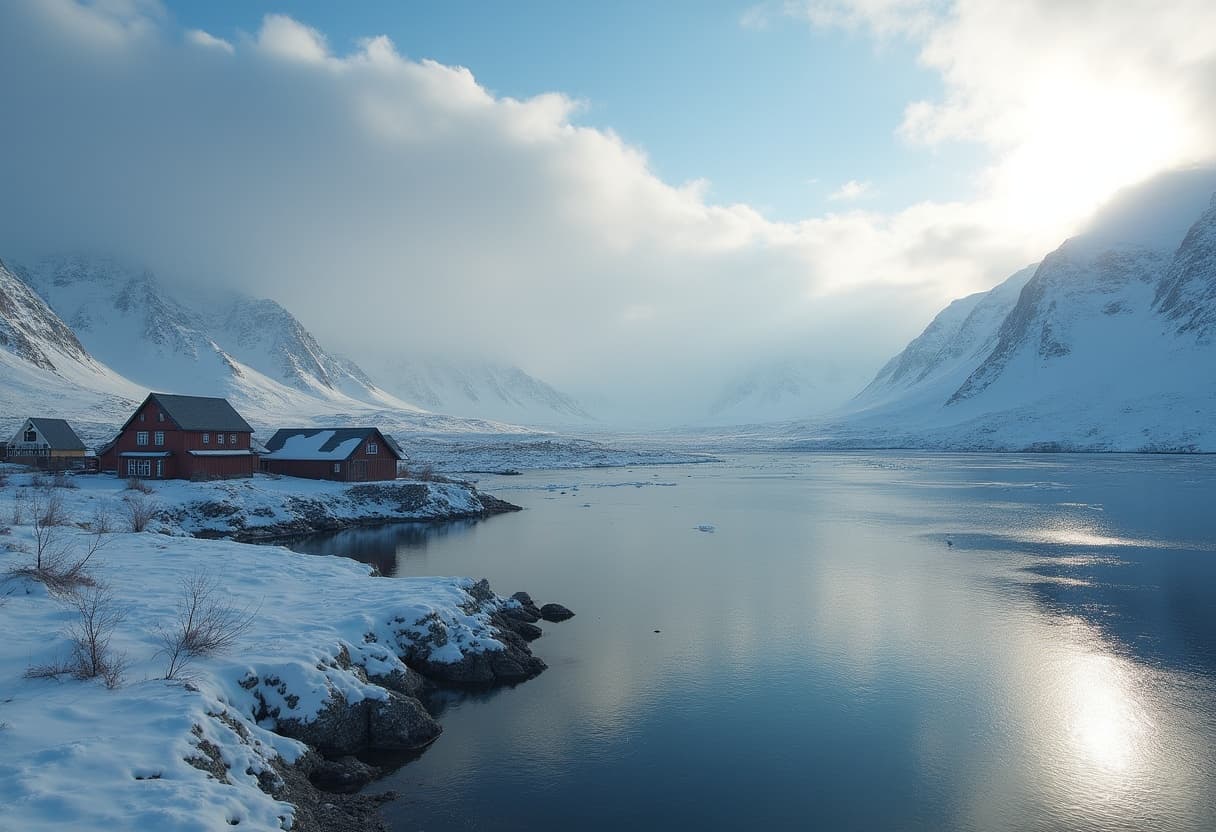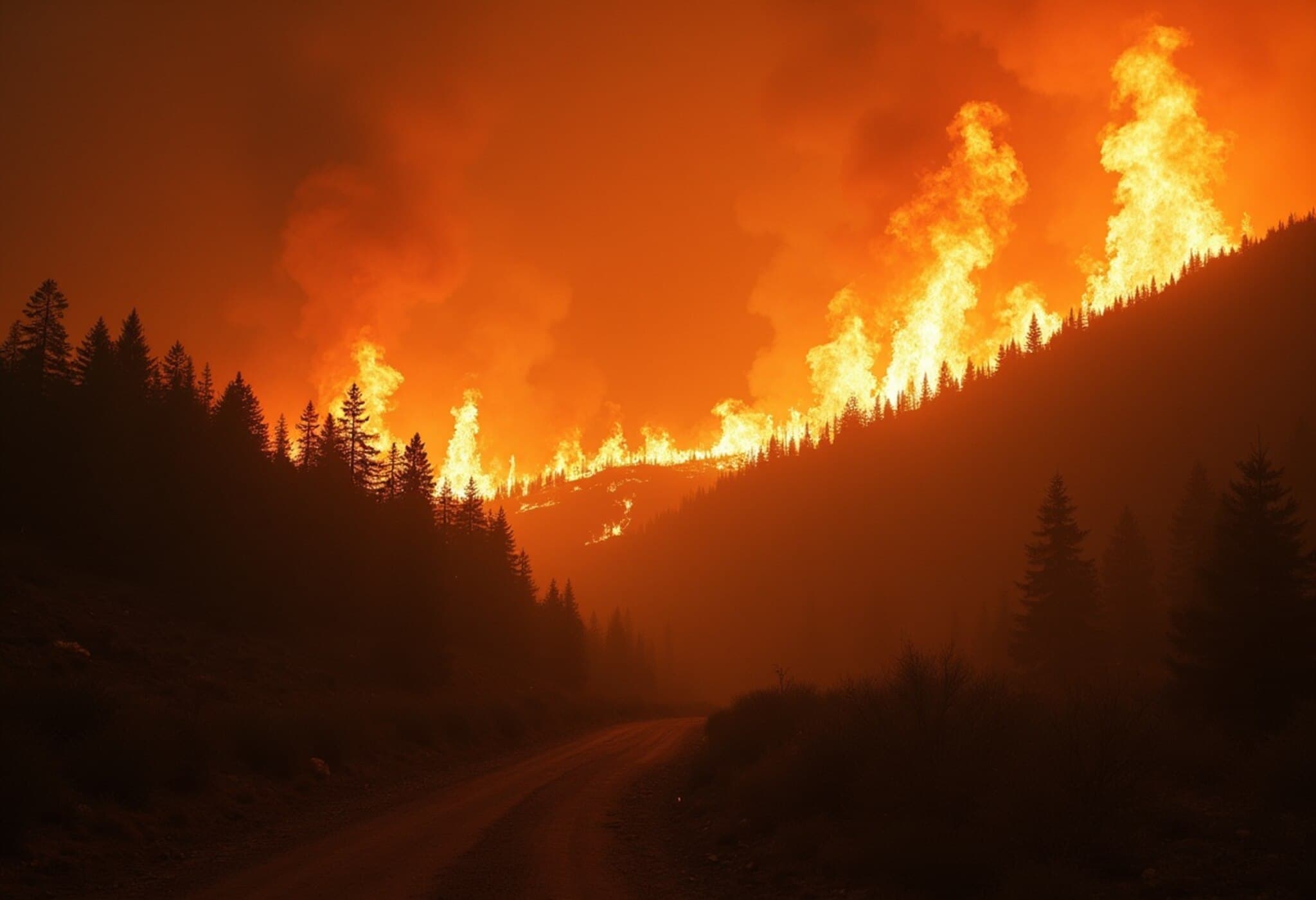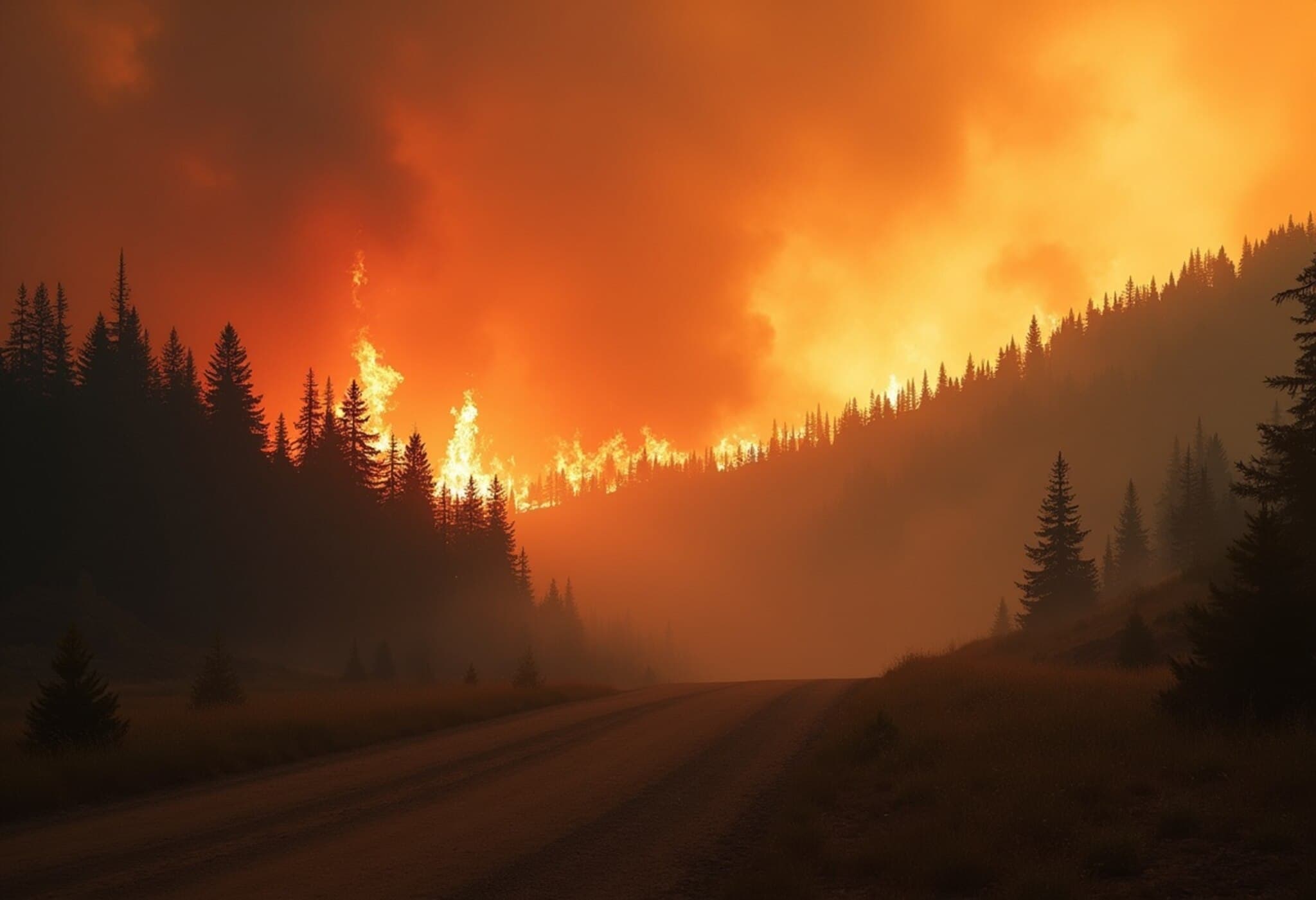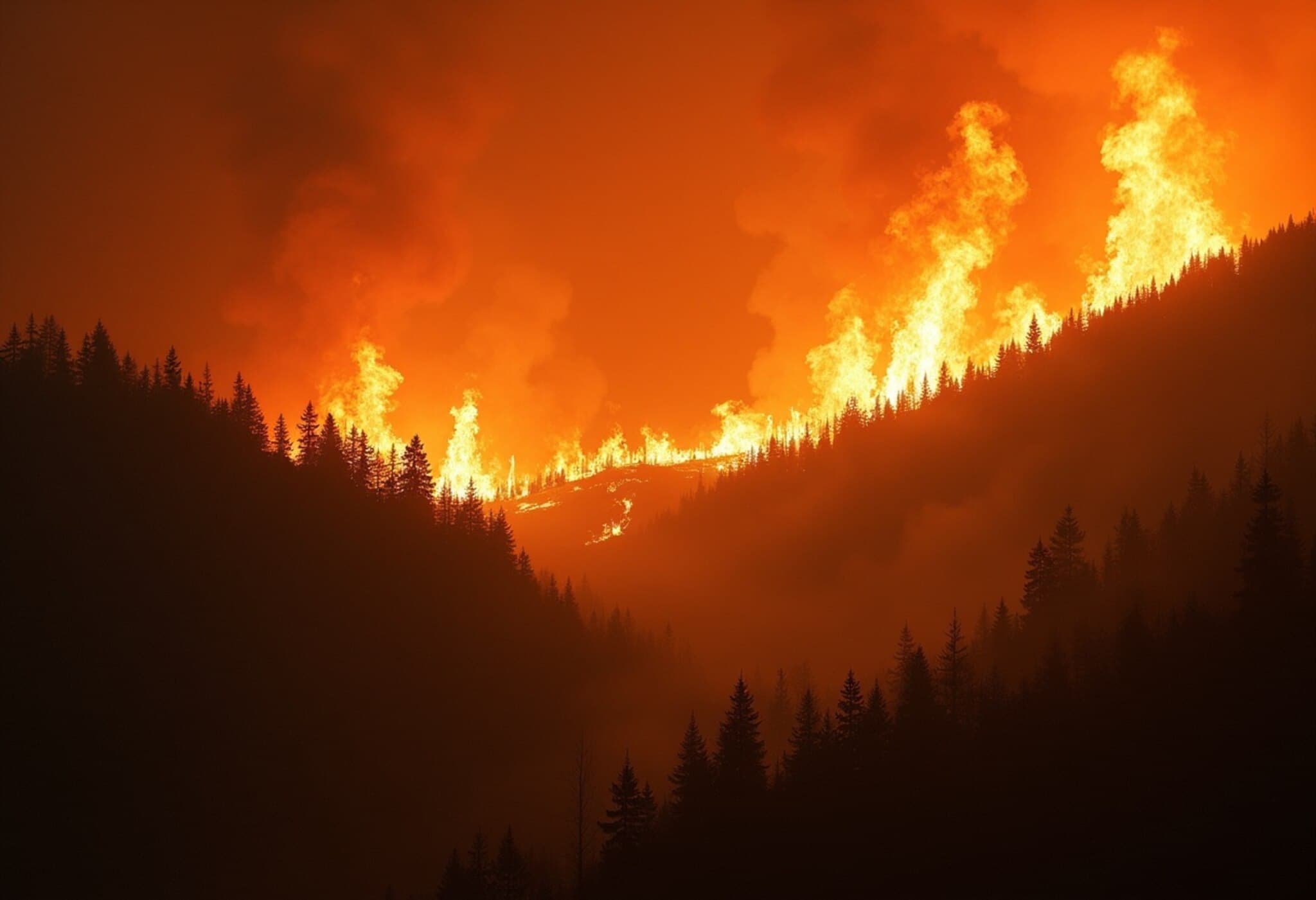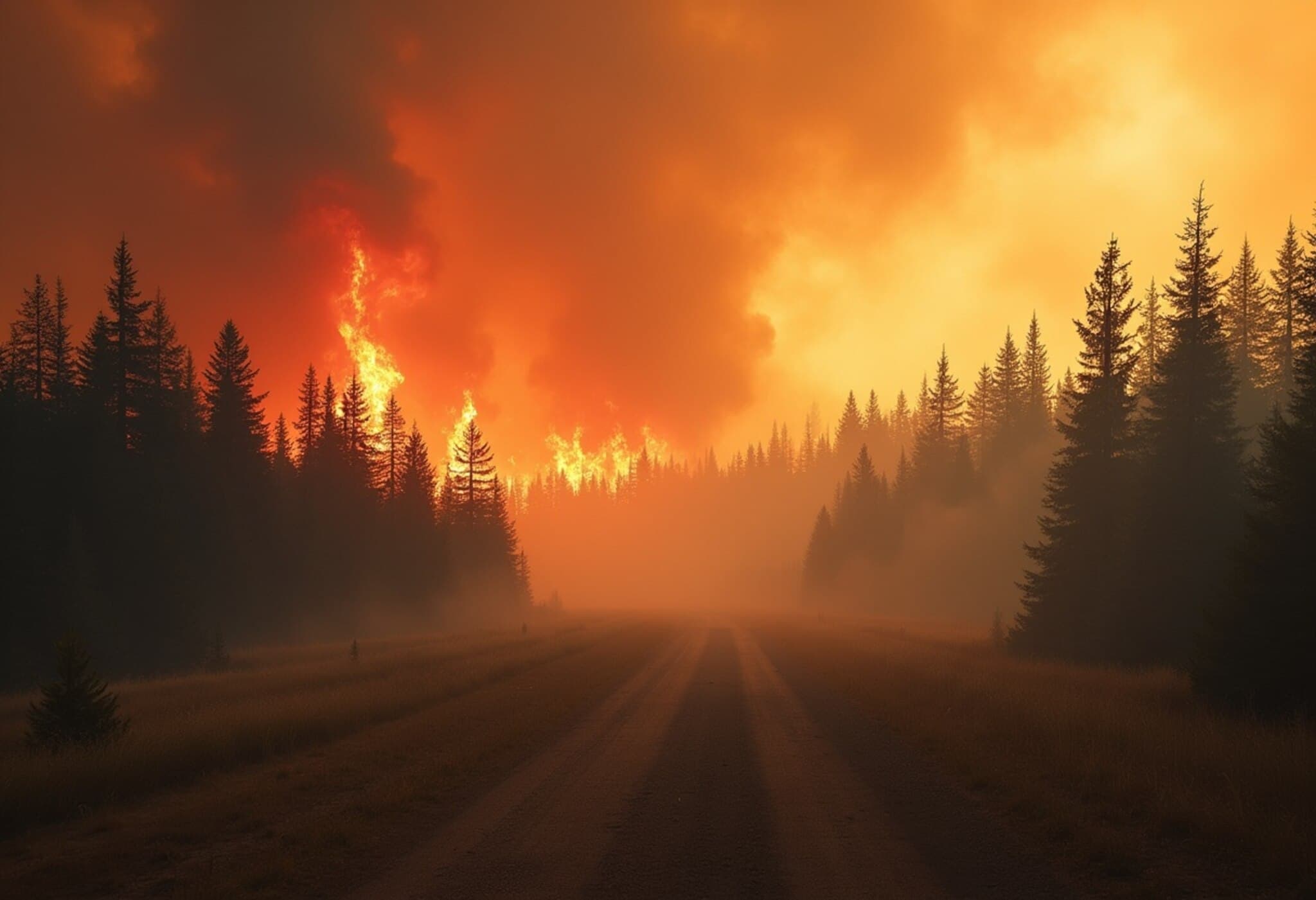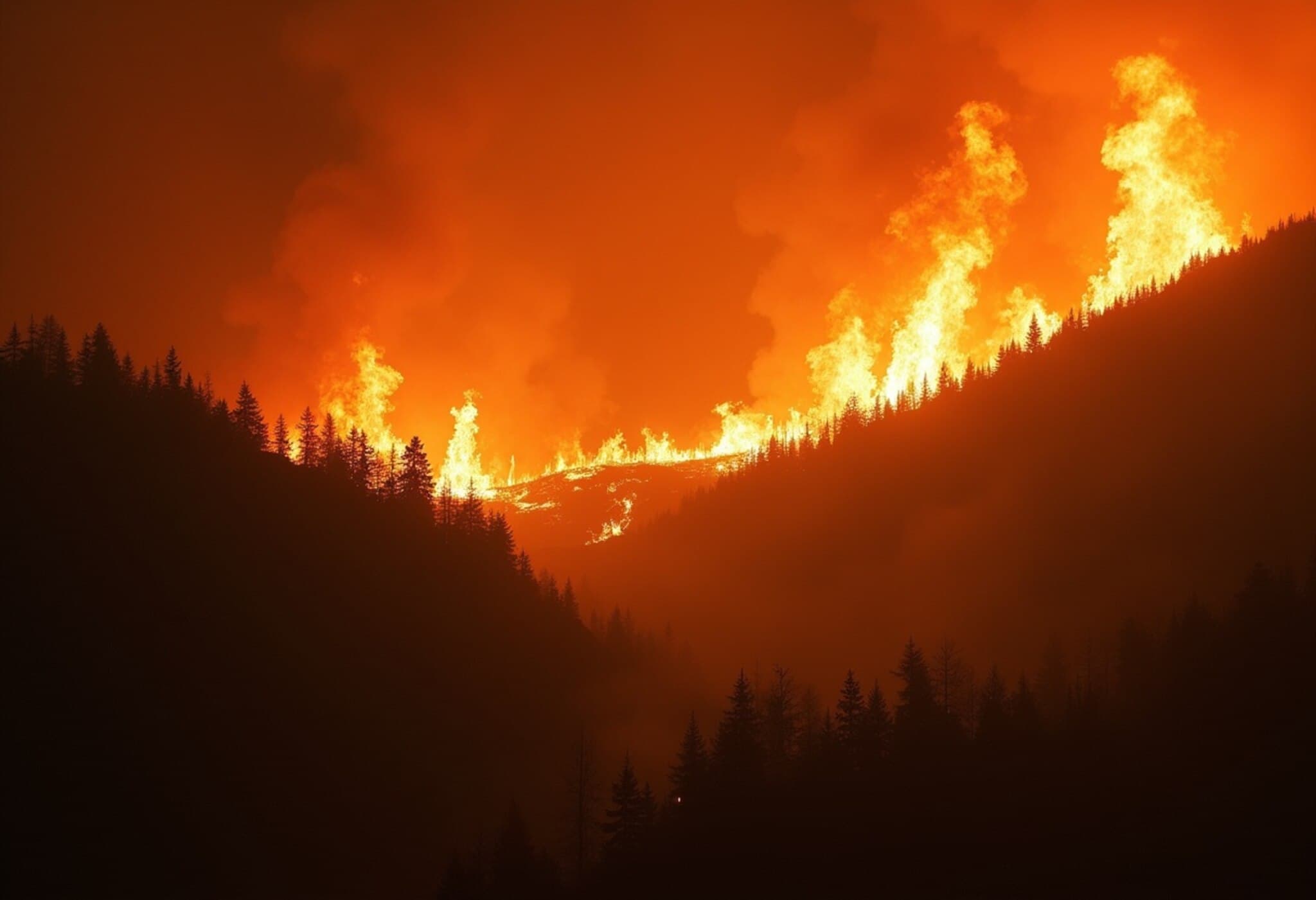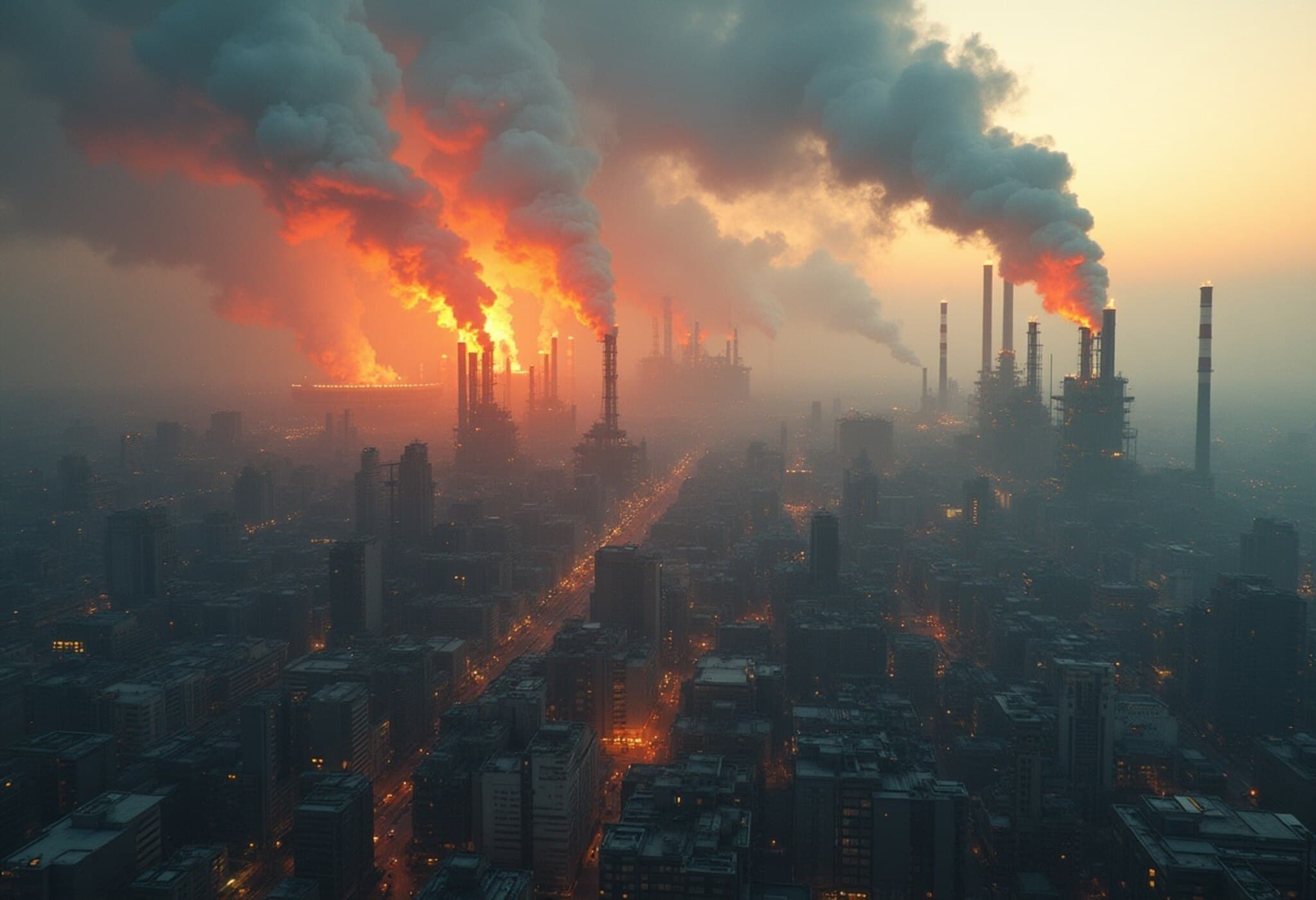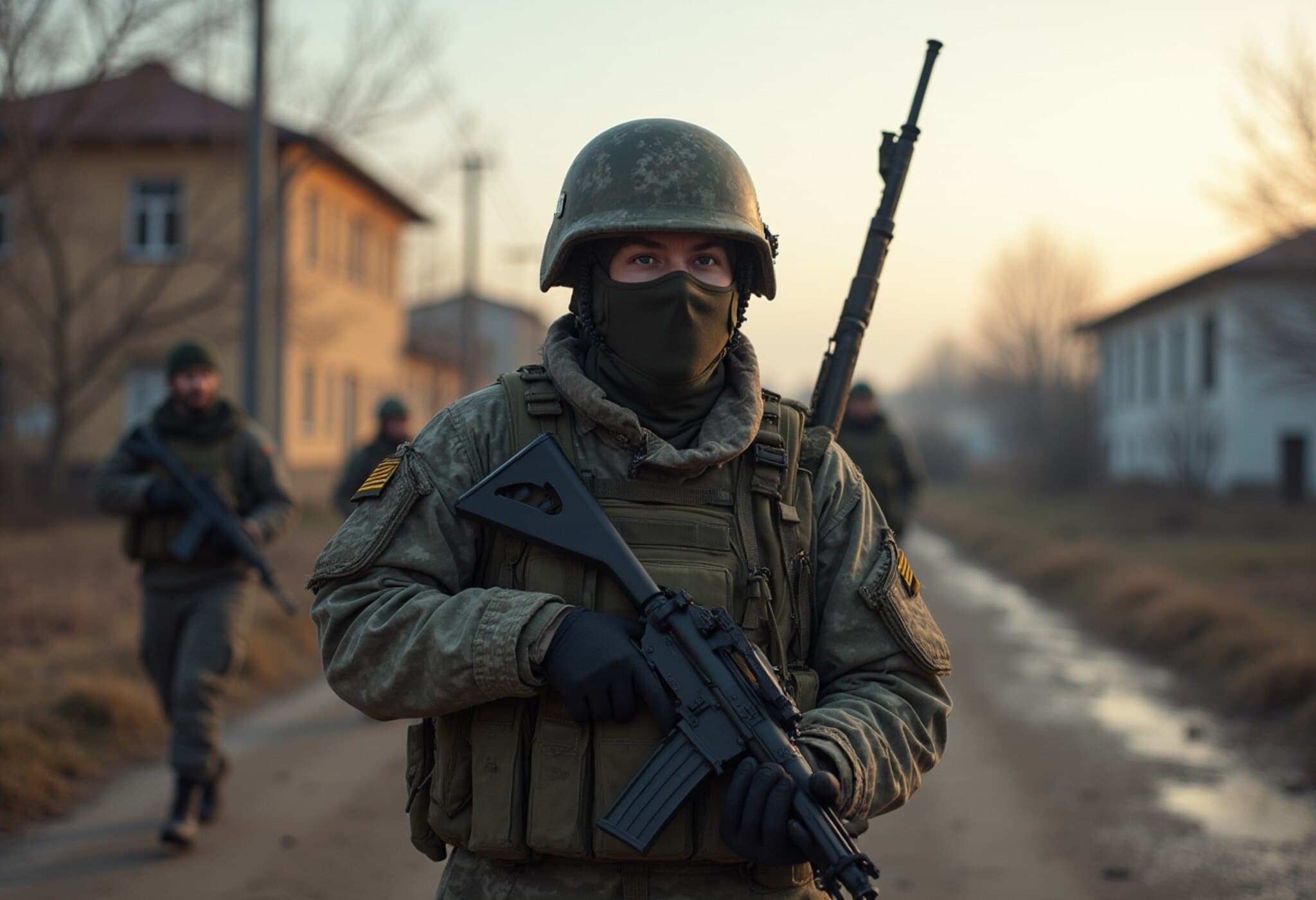Wildfire Devastates Athens Suburb Amidst Escalating Heatwave
In the early hours of Saturday, a fierce wildfire ignited near Kryoneri, a residential suburb located roughly 20 kilometers northeast of Athens, Greece’s bustling capital. The rapidly spreading blaze forced emergency services to issue urgent evacuation orders via multiple SMS alerts to residents, underscoring the growing threat of devastating wildfires in the Mediterranean region.
Swift Evacuations Amid Rising Flames
The Greek Fire Service spokesman, Vassilis Vathrakoyannis, confirmed that three consecutive evacuation messages were sent to Kryoneri inhabitants, urging immediate movement to safer locations. The fire’s relentless advance has already consumed numerous houses, with visible images broadcast by local media showing homes engulfed in flames.
Massive Mobilization of Firefighting Resources
Responding to this critical situation, Greek authorities have deployed an extensive firefighting task force on the ground and in the air, including:
- 145 firefighters
- 44 fire trucks
- 10 firefighting planes
- 7 helicopters
Despite these efforts, the fire’s origin remains undetermined. Compounding the crisis, four ambulances have been dispatched to assist at least five injured residents, predominantly elderly individuals suffering from respiratory complications—a vulnerability exacerbated by thick smoke and extreme heat conditions.
Extreme Weather Fuels Rapid Fire Spread
The regional climate has played a significant role in the fire’s ferocity. Temperatures soaring to or above 38°C (100°F), combined with parched terrain and strong winds, create perilous conditions where wildfires can explode quickly and pose heightened risks to communities.
“These weather patterns are expected to persist over the coming days, making containment efforts even more challenging,” Vathrakoyannis warned, emphasizing the urgency of preparedness and resilience.
Broader Wildfire Crisis Across Greece
This blaze is not an isolated incident. Greece currently grapples with multiple wildfires across its territory, including large fires on the islands of Crete, Evia, and Kythera. In total, the past 24 hours have seen 52 separate wildfire outbreaks, with an intense firefighting force of 335 personnel, 19 planes, and 13 helicopters dedicated to controlling the flames. These aerial assets, however, are limited to daytime operations.
European Support and The Road Ahead
Recognizing the severity, Greece has formally requested assistance under the European Union’s Civil Protection Mechanism, seeking an additional six firefighting planes to bolster containment efforts. This cross-border collaboration reflects the increasing exigency that climate change-driven disasters pose to Mediterranean countries.
Expert Perspective: A Growing Pattern Linked to Climate Change
Experts highlight that Greece’s wildfire surge aligns with broader global trends linked to climate change. Prolonged droughts, rising temperatures, and shifting weather patterns create a ‘perfect storm’ facilitating more frequent and intense fires. Urban sprawl into forested areas, like suburbs around Athens, compounds risk by placing more lives and property in harm’s way.
From an American policy lens, this raises critical questions about how urban planning, emergency preparedness, and climate mitigation strategies must evolve. The wildfire crisis in Greece is a stark reminder of the need for adaptive governance and international solidarity in managing natural disasters exacerbated by a warming planet.
What This Means for Residents and Authorities
- Residents should heed evacuation orders immediately and remain vigilant as conditions evolve rapidly.
- Local governments must improve early warning infrastructure and strengthen community resilience programs.
- Policymakers need to prioritize climate adaptation and fire risk reduction in urban and rural planning.
Editor’s Note
The escalating wildfire crisis near Athens serves as a crucial case study of how climate-related disasters increasingly threaten Mediterranean populations. Beyond the immediate urgency of firefighting and evacuation, this event compels us to ask: Are current preparedness and policy frameworks sufficient to protect communities from the growing fury of nature? As the flames reflect a warming world, a global dialogue on prevention, resilience, and international cooperation becomes ever more vital.

